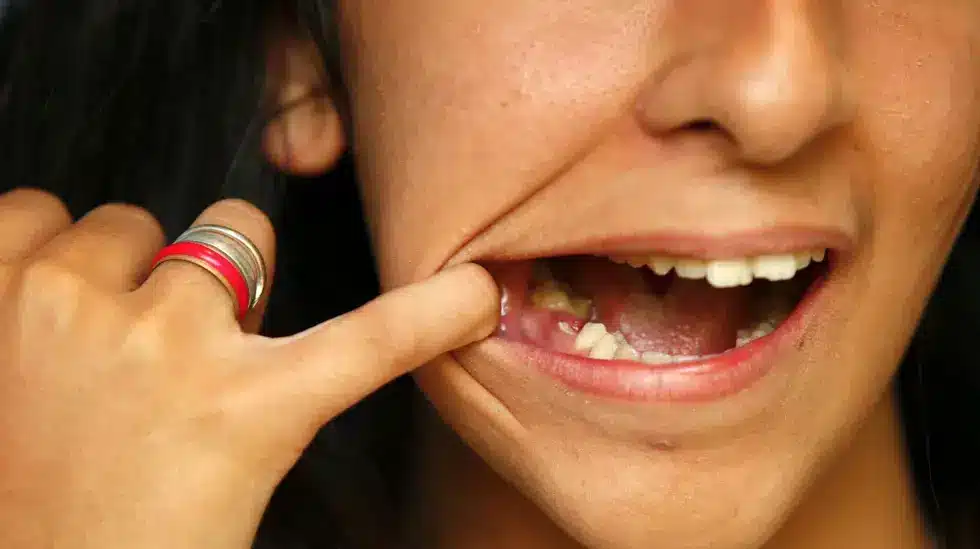Increasing number of people ‘don’t go to dentist’
Portugal’s relationship with dentistry has always been an ‘issue’ – but with the perceived progress of recent years, it is fairly shocking to discover that increasingly more people are losing teeth because they feel they cannot afford to go to the dentist.
The Oral Health Barometer 2024 released today by the Order of Dentists shows that citizens’ relationship with their teeth is, if anything, getting worse.
“Of the approximately one million people who never go to the dentist or go less than once a year, there are 300 thousand (30%) who point to lack of money as a justification for not having any dental consultation”, a percentage that has worsened by 5.6 percentage points (pp) compared to 2023.
How can this be? Well, for one thing, dentistry is not something easily available within the Portuguese state health system. The Order’s study suggests that if it was, the situation could change radically.
“The truth is that 98.2% of respondents consider access to oral health through the SNS health service to be important and/or very important” and 96.3% argue that the state should contribute to dental treatments, as it does with medicines”, says the study.
Analysing the frequency of dental consultations, the barometer concludes that 65.4% of the 1,102 respondents, aged 15 or over, still manage them ‘at least once a year’, 1 pp more than in 2023.
But the percentage of people who never made an appointment increased by 3.6 pp to 27.4%.
Data also shows a 6.8 pp increase in the number of people with at least one missing tooth, rising from 58.9% in 2023 to 65.7% in 2024 – as well as the population with six or more missing teeth, which rose from 22.8% to 28%.
The data indicates that women are the ones who are most likely to have missing teeth – with only 31.7% having ‘complete teeth’, compared to 36.8% of men.
Of the two thirds of the population with at least one missing tooth, 57.1% have nothing to replace that missing tooth – up 7.2 pp
When the indicator under analysis becomes the lack of six or more teeth – considered the reference number that affects the quality of chewing and oral health – women also present the highest values: 31.4% compared to 23.4% for men.
According to the barometer, the population’s oral hygiene habits have also worsened, with only 74.4% of respondents stating that they brush their teeth frequently (at least twice a day), down 4.4 pp.
The 2024 report also reveals that just 2.5% of respondents go to an appointment via the SNS or a dental check (+0.5 pp). The rest do so privately or through insurance (because SNS access is not a simple matter).
As for children under six who have never been to the dentist, the percentage has reduced over recent years, and is now on ‘just’ 49.6%.
Commenting on the results overall, president of the Order of Dentists, Miguel Pavão, considers “they are a shame for the country and reflect the lack of investment in oral health.
“The Portuguese people are still waiting for the Government to present the National Oral Health Programme, which was meant to have been known by the end of 2024”, he said.
“While the World Health Organization takes important steps in recognising the impact of oral health on general health, and challenges countries to work to ensure universal access to this care, the strengthening of the right to oral health in Portugal remains stagnant.
“We can never dissociate oral health rates from the fact that almost 20% of the population lives in poverty. A population without resources and mechanisms to access oral health conditions faces greater social inequalities, greater absenteeism and more social and self-esteem problems”, he added.
For the president, a priority programme for oral health is urgent and long overdue. Its make-up could be involve the public, private and social sectors, the Ministries of Health, Social Security and Youth – due to the role they can play in preventing health problems at all stages of life and in intervening with risk groups – but what is most important is that it starts.
“It is crucial to invest, and to have a budget for oral health”, Pavão concludes.
natasha.donn@portugalresident.com
source material: LUSA



















